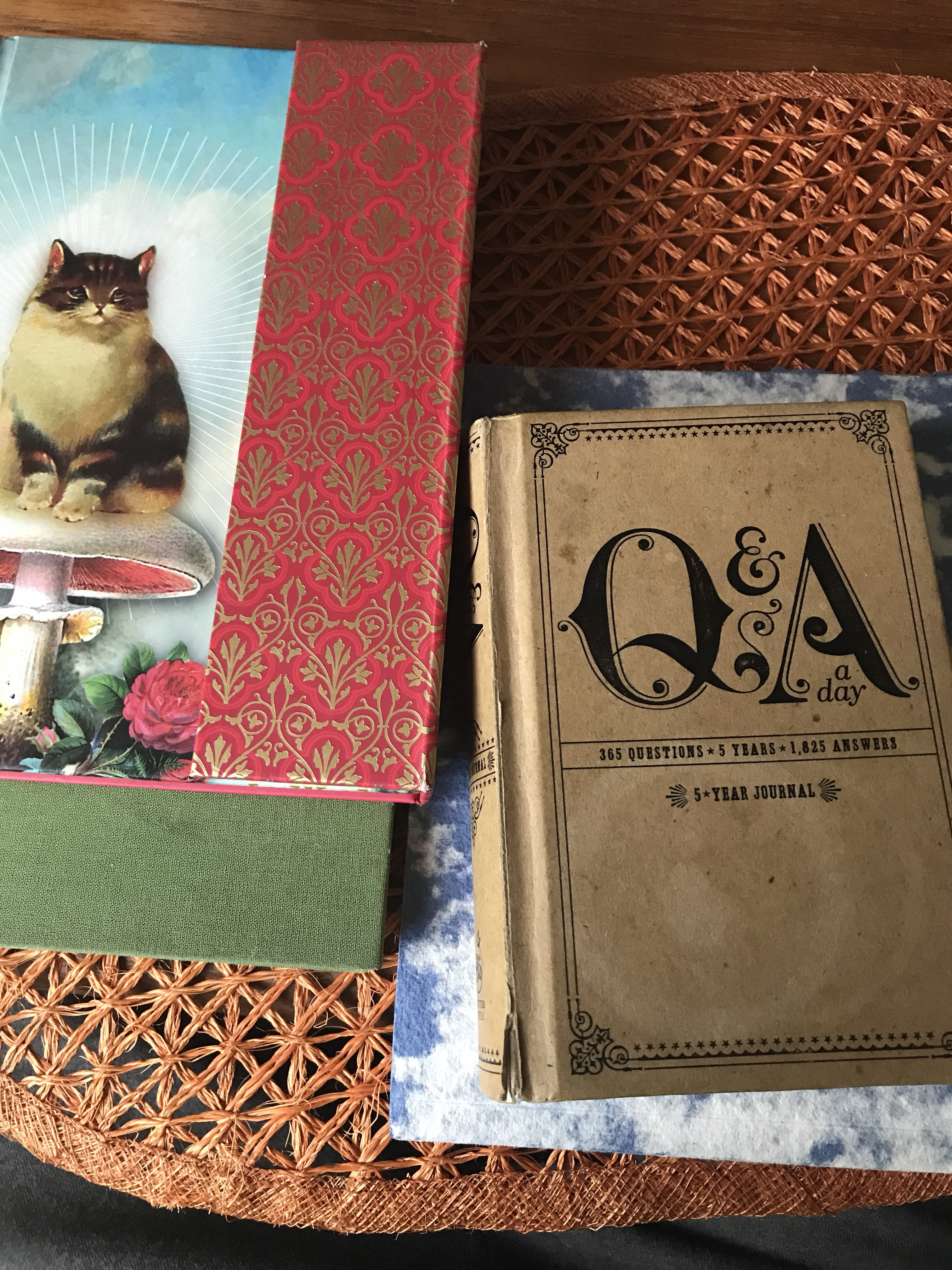One of the journals I keep is a Daily Q&A journal, which asks the same question each calendar day every year for five years. It’s a great exercise in seeing what’s changed in your life and what’s not; where I’m moving toward my goals and where I’m stuck.
 That ability to better understand the present in context of the past is one of the many things that’s valuable about old notes. I’ve thought for some time that if I was going to start another company right now, it might focus on re-surfacing new value from old notes. I love thinking about how old wisdom or information sheds new light on new circumstances. That’s a phenomenon I’d like to think about a lot more. For now, some specific examples.
That ability to better understand the present in context of the past is one of the many things that’s valuable about old notes. I’ve thought for some time that if I was going to start another company right now, it might focus on re-surfacing new value from old notes. I love thinking about how old wisdom or information sheds new light on new circumstances. That’s a phenomenon I’d like to think about a lot more. For now, some specific examples.
Today my daily Q&A journal asks “what was the best thing you read today?”
On this day in 2014, I said it was a Chomsky interview in The Sun. Incidentally, I’m reading a wonderful Chomsky book right now that I got in a Free Library walking down the street. (I live in Portland, there’s Chomsky just laying about here.) Why did it take me four years to get back to reading Chomsky? Because the interview wasn’t that good. The book is great though! It makes me think that a great author shouldn’t be judged from one piece.
On this day in 2015, the most interesting thing I read was my own Evernote file of important thoughts recorded in the month of May. I still keep a file like that and I still review it regularly! One difference is that I now transfer those thoughts to a flashcard app called Anki for review and I record them in the first place in a private wiki instead of Evernote. My beloved personal wiki turns one year old next month, in fact.
In 2016 the most interesting thing I read on May 30th was an HBR article on five key steps for building support for your ideas: show up face to face to describe them, give a good speech about them that frames the discussion, have strong allies, have strong moral beliefs, and be persistent. That’s been in my flashcards ever since then but it’s something I could really use right now. Thanks for another reminder, old journal entry!
Last year on this date I was reading Eric Barker’s incredible book Barking Up the Wrong Tree. He tells a story about how comedians experiment with all kinds of jokes at small shows on the road, often telling jokes that fall flat, but taking note of those that land well. Then when they do a national show, that quantity of experiments provides enough proven wins that they can put together a show that’s 100% funny. That’s inspiring!
Have I produced enough content over recent years that I could piece together a really solid presentation or piece of writing where I know every item would make an impact? Not formally, but perhaps informally. That seems like a smart thing to make a wiki page about: points made that made an impact.
What did I record this year in response to the question, “what’s the best thing you read today?” I said, “my own note I took down some time ago that said, ‘when you say something powerful, stop.'”